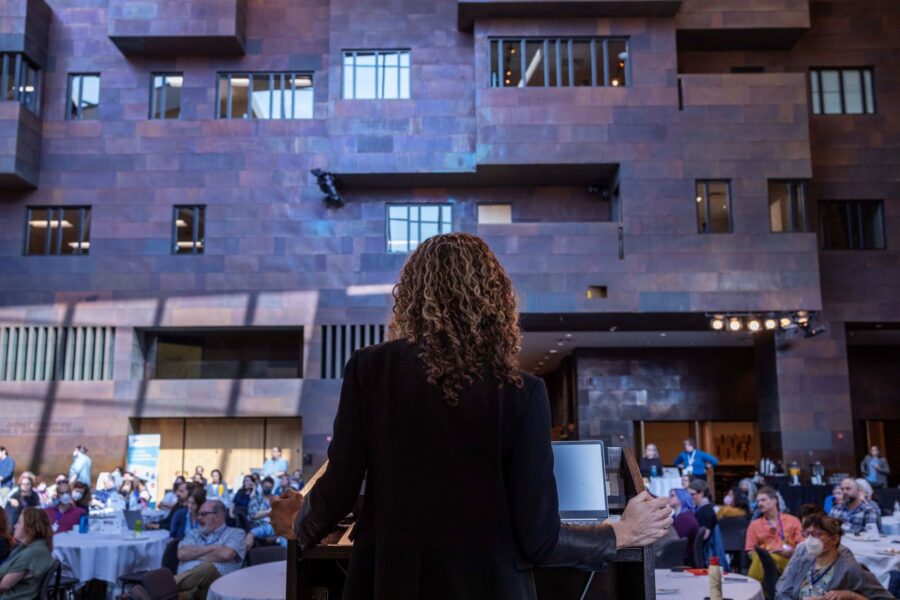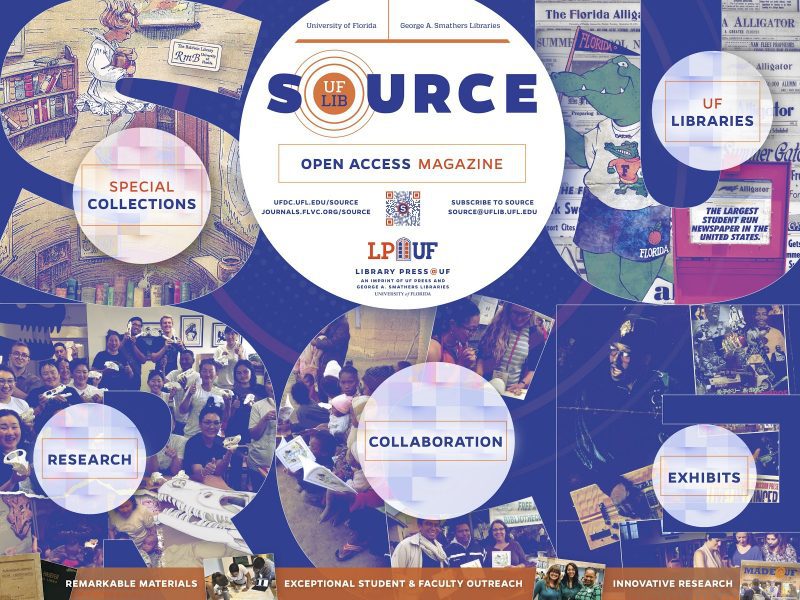January 14, 2025
By Nancy Adams
The development and use of this survey was based on the recommendations found in the Library Publishing Coalition’s (LPC) Roadmap for Anti-Racist Practice. This is a charge carried out by the Diversity, Equity, and Inclusion (DEI) Committee. The 2024 survey was made available to Library Publishing Forum (LPF) attendees in order to understand who attends the Forum. Moreover, this survey helps us track demographic changes over time. (View the reports on the 2023 and 2022 surveys.)
The 2024 Forum was an in-person event held May 15 and 16, 2024 at the University of Minnesota in Minneapolis. This may explain the smaller number of registered attendees and higher percentage of survey completion than the virtual forum in 2023. Comparing responses between this year and last year allows us to gauge demographic trends across different conference formats. But we recognize the forum that would be the most comparable to this year’s is the in-person portion of the 2022 Forum. However, since that event was significantly smaller than this year’s, it might not serve as an effective baseline. The 2024 Forum may instead function as the baseline for in-person conferences going forward.
Notes
As all questions were optional, not all questions were answered. Therefore, numbers/counts may not always add up. The respondent information includes both LPF attendees and presenters.
Summary of responses and comparisons
The 2024 LPF had 154 registered attendees, while 2023 had 267 and 2022 had 330 registered attendees (246 were virtual while 84 were in-person).
We received 66 responses to the demographic survey from 2024 LPF attendees, which is an increase in the response rate, but a decrease in total number of responses (86 in 2023, 83 in 2022). The response rate in 2024 was 42%, compared to 26% in 2023 (a virtual/in-person combination), and 36% in 2021.
In 2024, the age of forum attendees ranged from 20 to 60+. Most were between 40-49 years in age (38%), with the next closest range being between 30-39 years in age (34%). This is similar to the 2023 forum. In comparison, the majority of the 2022 forum respondents ranged between ages 30-59.
This year’s results show a decline in attendees identifying as Black, Indigenous, and People of Color (BIPOC), from 14% in the 2023 survey to just 6% in this year’s. (Again, the 2023 Forum was all virtual and had a larger number of registrants overall, so meaningful comparisons are difficult.) Participants were given the opportunity to share additional details about their identity. One person who identified as BIPOC shared they were Asian American. The only other respondent did not identify as BIPOC; they used this field to report they were White. In 2022, 20% of respondents selected race and ethnicities typically contained within the phrase BIPOC. Those options included Asian, Black, Hispanic or Latina/o/x, First Nations, Native Americans Alaska Native, or Metis, and I didn’t as another race/ethnicity/Unknown.
Of the 65 responses to the question on gender, most (79%) respondents were women, which is a slight decrease from previous years. Additional responses include men (15%), non-binary (4%), and genderfluid (2%). Participants were also given the option to share additional information on their gender identity. Only one person responded, sharing that though they had identified themselves as a woman in the previous question, they do not identify with their gender.
Only 37 people responded to the question related to having a disability. Most of these (76%) shared they did not. About 22% of those who responded to this reported having a disability, compared to 29% in 2023 and 17% in 2022. Since 2022, respondents now also have the ability to include an explanation or alternative response to this question. These additional responses included chronic conditions, migraines, OCD, and ADHD.
Since 2023, respondents are asked whether they identify as neurodivergent. In 2024, there were 39 responses to the question on identifying as neurodivergent. About 31% of these responses identified as neurodivergent.
In 2024, all respondents indicated they were employed full time, 2 respondents also indicated they were students. In 2023 92% of respondents were employed full-time with 95% reporting full-time employment in 2022.
Beginning with the 2023 survey was the open response question about any other identities. Less than 10 people used this field to share information on their ethnicity (Ashkenazi Jew), sexuality (bisexual, queer), their predominant language (non-English dominant speaking), their political views (socially conservative), their religious culture (Christian), and their caretaker roles (parent, mom).
New to the 2024 survey was an open response asking if something could have been done to make the conference more accessible for attendees. We received 9 substantive responses. Several focused on better audio, consistent use of microphones was specifically mentioned several times, and exploring the possibility of captioning as part of the slide desk display. Others suggested several accommodations for individuals that use mobility aids or may not be able to stand for longer periods. Related to the food service, one respondent asked for more consistent labeling of potential allergens.
Final Comments
The 2024 LPF was entirely in person, while the 2023 LPF was online and the 2022 LPF was hybrid. Moving forward, virtual and in-person years will alternate. This shift in format will need to be considered when evaluating demographic surveys in future years and the comparisons across years.
We recommend that future forum planning committees incorporate accessibility recommendations, as suggested by attendees of this year’s in-person forum. We also recommend thoughtful efforts to reach and engage a more diverse representation of library publishing professionals. Some ideas from previous notes and discussions include coordinating opportunities for in-person/virtual meet-ups for BIPOC library and publishing professionals, establishing a group for BIPOC library publishing professionals, and providing professional development funding and/or mentorship programs for BIPOC library publishing professionals. We also recommend that the Library Publishing Coalition create and regularly issue a census of its committee members and program participants.
We hope that the next in-person forum planning committee will incorporate the recommendations made by this year’s attendees.
The Library Publishing Coalition’s DEI Committee members are incredibly appreciative of the many LPF participants who took the demographic survey during this year’s Forum.
We welcome LPF participants and LPC members to contact us at inclusion@librarypublishing.org if you have additional resources or feedback you would like to share to help us improve our work.





